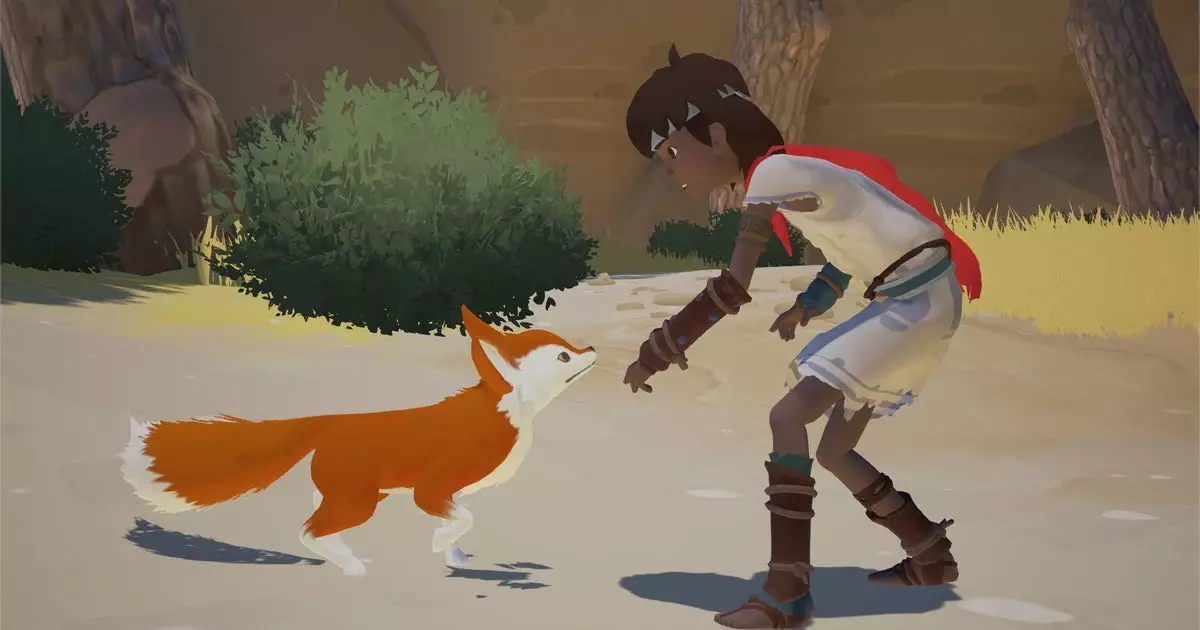The story of Tequila Works serves as a poignant reminder of the precarious nature of the video game industry. Just a year ago, this once-thriving Spanish development studio made headlines not for their innovative creations, but rather for a troubling narrative of financial distress, staff layoffs, and eventual insolvency. The loss of funding from giant Tencent marked a critical juncture in the company’s timeline, leading to the heartbreaking shuttering of projects and the exit of its founders, Raúl Rubio and Luz Sancho. The studio, which had graced the gaming world with enchanting titles such as Rime, found themselves in a grim state, where the impending loss of talent and vision loomed larger than creativity.
A Portfolio in Peril
As the remnants of Tequila Works prepare for an open auction of their assets, the contents reveal a bittersweet tale of ambition cut short. Among the treasured relics of what was once a bustling studio are established games like the horror-tinged platformer Deadlight, alongside a suite of innovative projects. The listings on Escrapalia unveil a hopeful yet melancholic glance into what could have been: a narrative-driven action-adventure titled The Ancient Mariner. It aspires to intertwine human emotion with gameplay mechanics, echoing the soulfulness of Rime while nodding to Coleridge’s evocative poem.
However, it’s crucial to approach this ambitious pitch with skepticism. While the concept holds potential, the execution is key; it could either resonate with audiences or risk falling flat in an increasingly competitive market rife with imitators and uninspired offerings. Still, one cannot deny the allure of an open-world narrative that aims to drive players through emotional landscapes, as this demonstrates Tequila Works’ commitment to merging storytelling with gameplay.
Cherished Memories and Lost Opportunities
In contrast, another project highlighted in the auction, Dungeon Tour, paints a drastically different picture. Marketed as a whimsical blend of Overcooked and Dungeon Keeper, it invites up to four players to explore and navigate procedurally generated catacombs. The humor and lightheartedness of the premise could have introduced a fresh dynamic to cooperative gameplay, allowing players to engage in mischief while guiding hapless tourists. Imagining beloved characters from fantasy universes tasked with shepherding clueless adventurers not only evokes laughter but also positions the studio as one with a knack for innovative collaborations between genres.
Although the potential of Brawler Crawler, which was set in a chaotic universe filled with procedurally generated streets, has sadly been extinguished, it adds another layer to the tapestry of what Tequila Works aimed to achieve. Cancelled too soon, it raises a crucial question: how many other creative eruptions are lost when funding slips away?
The Human Cost of Corporate Failures
The human toll of this studio’s collapse underscores the fragility of creative ventures. Previous employees have taken to LinkedIn, searching for new opportunities while reflecting on their time at Tequila Works. Their heartfelt tributes reveal a familial bond created through the shared challenge of innovative game development. For individuals like Rob Yescombe, who worked as a freelance narrative director on beloved titles, the studio represented a beacon of hope—a place where creativity thrived, even amid uncertainty.
The industry now witnesses a shift from collaboration to competition; staff who had poured their souls into projects now face an uncertain future. Their stories illustrate not only the sacrifices made in pursuit of innovation but also the profound impact that a workplace culture can have on personal and professional growth. It is a testament to the legacy that Tequila Works leaves behind, a blend of brilliance stymied by systemic failures.
Confronting the Uncertain Future
As the auction unfolds and assets are distributed, we must remember the heart and soul embedded in each game and project. The disheartening fate of Tequila Works calls for reflection on how the industry can learn from its demise—a call to prioritize creative vision over capitalist pursuits of profit margins. The loss of Tequila Works is not just an end to a studio; it is an echo that challenges the gaming community to cultivate a culture that fosters creative risk-taking while providing a sustainable environment for innovation. In this way, the spirit of Tequila Works might live on, urging new creators to harness creativity without fear of financial reprisal.


Leave a Reply